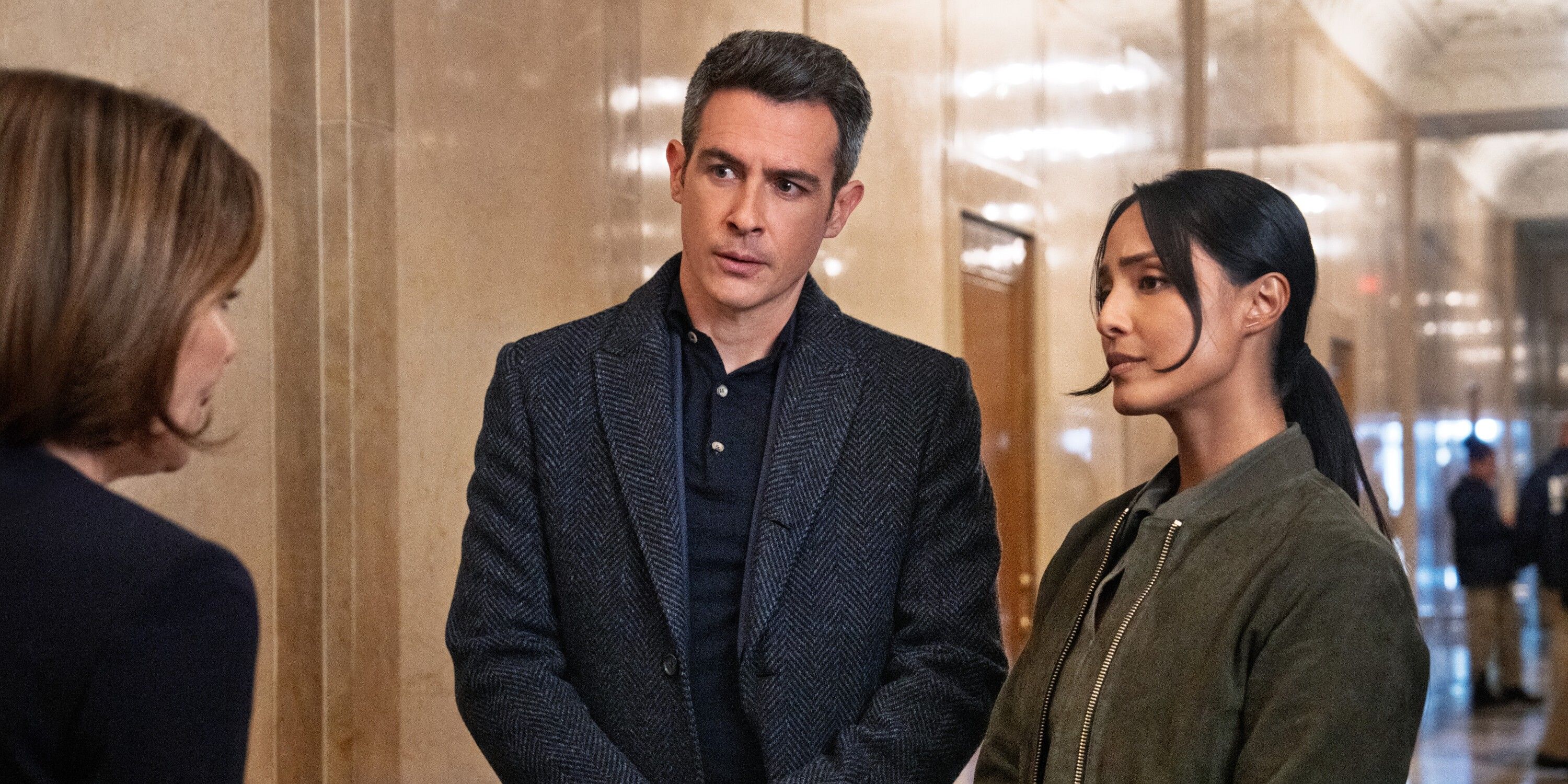
FBI Season 7, Episode 20, “Startup” wants to be a massive episode — and it almost is for the wrong reasons. The CBS show sets up yet another epic-level emergency (not even its first of the season) involving fatal drone strikes on American soil. But what makes the story work isn’t those dramatically inflated stakes. It’s a choice that happens near the end of the hour, which comes very close to torpedoing the entire series.
“Startup” begins with a bomb detonating in the penthouse of a car company CEO, killing him, his wife and their live-in nanny. But what starts out as a straightforward story of taking down the one percent warps into a whole spiel against artificial intelligence. And the plot turns out to be almost secondary to the performances, from both the main and guest casts, because the emotion is more powerful than the diatribes.
FBI Season 7, Episode 12 Veers Away From a Prototypical Bad Business Story
The Stakes Are Once Again Set Astronomically High
Jubal Valentine (to Isobel): If somebody wanted to eat the rich, I’d say they found the right menu.
Eventually, the real dilemma revolves around an AI company named Cyclone. Both Minskoff and Archer were on the organization’s private board, so the Bureau begins to drag out all of the company’s secrets. In a nutshell, the co-founder Perry Hinton was ousted from the group two weeks earlier for railing against the board’s decision to turf its AI safeguards. Perry becomes the prime suspect, until it’s revealed that he took his own life before the drone strikes. The real perpetrator is the other co-founder, Scott Collins, who has decided to “honor” his former partner and friend by forcing the board to change their minds through violence. It’s weird and somewhat awkward to combine an AI debate with a more straightforward crime story… but at least it keeps the episode from being too predictable.
How FBI Season 7, Episode 12 Almost Takes the Entire Series Down
A Major Character Death Feels Like an Actual Possibili
Normally, such situations would fall under the category of “false jeopardy,” because viewers would know there’s no way a main character is being killed off a TV show without it being announced on multiple news sites first. But because that character is Maggie, the moment actually feels real. Audiences know that Maggie has left FBI numerous times before for various reasons, and that her life has been threatened more than once across seven seasons — so it wouldn’t be implausible for her to die if actor Missy Peregrym had decided to move on. Yet the loss of Maggie would absolutely doom FBI as a series.
The entire cast is solid, but the partnership between Maggie and OA is the core of FBI. The incredibly supportive, well-balanced bond between the characters is what every other detective pairing on TV wants to be, and Peregrym and co-star Zeeko Zaki have that same strong rapport between them. And the subplot about finding Stuart Scola a new partner is example number one of how hard it is to locate someone else who can step into this ensemble. Peregrym just isn’t replaceable, both on her own and in what Maggie provides as a part of the show overall. That real fear of losing her almost makes up for this episode’s baffling decision to toss her romance with Joel away so easily, as if the writers just got bored with it. To ask the audience to invest multiple episodes in whether or not Maggie could open up to Joel, only to drop him, feels like the fans wasted their time.
FBI Season 7, Episode 12 Benefits From Its Gotham Connection
Robin Lord Taylor Makes His Antagonist Convincing
Viewers will likely recognize the main guest star in this FBI episode: Scott Collins is played by Gotham star Robin Lord Taylor. While it’s a very different role from Oswald Cobblepot, Taylor imbues Scott with the same kind of restless energy. His performance helps to smooth over some of the awkwardness in the plot. The scene in which Maggie and OA track Scott down at Cyclone’s original headquarters is a prime example of the villain monologue — where the bad guy stands there and delivers their entire manifesto. But Taylor puts enough desperation into that, that the audience is able to ignore the fact that he’s being asked to do a giant information dump.


